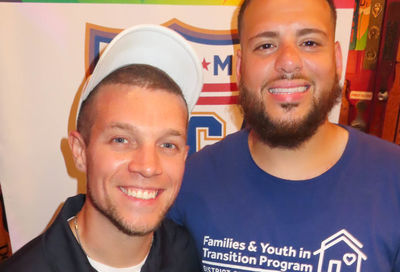Court of Public Opinion
Kagan-hearings commentary ignores guaranteed constitutional protections
The confirmation hearings for Supreme Court nominee Elena Kagan left more questions than answers, since she quite properly refused to prejudge matters that might come before her. This has led many people to parse her testimony like fortune-tellers reading tea leaves.
One is writer Jonathan Rauch. In a July 2 New York Times op-ed, he focused on Kagan’s statement, ”The Supreme Court, of course, has the responsibility of ensuring that our government never oversteps its proper bounds or violates the rights of individuals. But the court must also recognize the limits on itself and respect the choices made by the American people.”
Rauch writes, ”Ms. Kagan … seems to be saying that protecting minority rights is the Supreme Court’s job description, but also that a civil rights claim doesn’t automatically trump majority preferences. This is something absolutists on both sides of the gay marriage debate don’t like to hear, but it has the virtue of being right.”
At the risk of being marked as one of the ”absolutists” Rauch dismisses, I would love to know how something can be called a civil right yet be denied by majority preference.
Rauch writes, “Whatever the activists on both sides say, nothing in the Constitution requires the Supreme Court to short-circuit the country’s search for a new consensus, either by imposing gay marriage nationwide or by slamming the door on it with an aggressively dismissive ruling.”
Actually, something does. Section 1 of the 14th Amendment states, ”No State shall make or enforce any law which shall abridge the privileges or immunities of citizens of the United States; nor shall any State deprive any person of life, liberty, or property, without due process of law; nor deny to any person within its jurisdiction the equal protection of the laws.” This is not appended by the phrase ”unless a majority of voters decides to do so.”
Rauch does not explain why our rights should be subject to a popular veto. To be fair, he is not saying that such a result would please him. He notes that he married his partner Michael in D.C. in June, and that his marriage is not recognized by his home state, Virginia, thus requiring expensive legal instruments that at best approximate a few of the protections of marriage.
So Rauch is not happy with the injustice faced by gay couples. He simply believes there are other relevant considerations, such as people’s unhappiness with rapid social change: ”Civil rights … are important, but so is judicial modesty, and a sensible judge balances the two.”
Unfortunately, Rauch’s conservative temperament betrays him here. According to his argument, Brown v. Board of Education was wrongly decided. It is one thing to say that pressing Perry v. Schwarzenegger is too risky with the Supreme Court so closely divided. It is another thing to suggest that a pro-gay result would be illegitimate on account of being unpopular.
Granted, judges should not issue landmark rulings lightly. A momentous decision requires careful deliberation. But plaintiffs’ attorneys in Perry, led by David Boies and Ted Olson, have put together a powerful case with painstaking thoroughness. To insist that referenda trump Equal Protection analysis is an assault on the judicial review, which has been a cornerstone of government checks and balances since Marbury v. Madison in 1803.
We don’t know how Kagan will vote once confirmed, though I took her caution at the hearings as designed chiefly to avoid giving her opponents ammunition. Once on the court, she will be immune to political pressure. Rauch seems to consider this a bad thing. On the contrary, it is built into the American system. Supplanting constitutional protections with the judgment of the crowd would be an atrocious example of judicial activism.
Richard J. Rosendall is a writer and activist. He can be reached at .
Support Metro Weekly’s Journalism
These are challenging times for news organizations. And yet it’s crucial we stay active and provide vital resources and information to both our local readers and the world. So won’t you please take a moment and consider supporting Metro Weekly with a membership? For as little as $5 a month, you can help ensure Metro Weekly magazine and MetroWeekly.com remain free, viable resources as we provide the best, most diverse, culturally-resonant LGBTQ coverage in both the D.C. region and around the world. Memberships come with exclusive perks and discounts, your own personal digital delivery of each week’s magazine (and an archive), access to our Member's Lounge when it launches this fall, and exclusive members-only items like Metro Weekly Membership Mugs and Tote Bags! Check out all our membership levels here and please join us today!



















